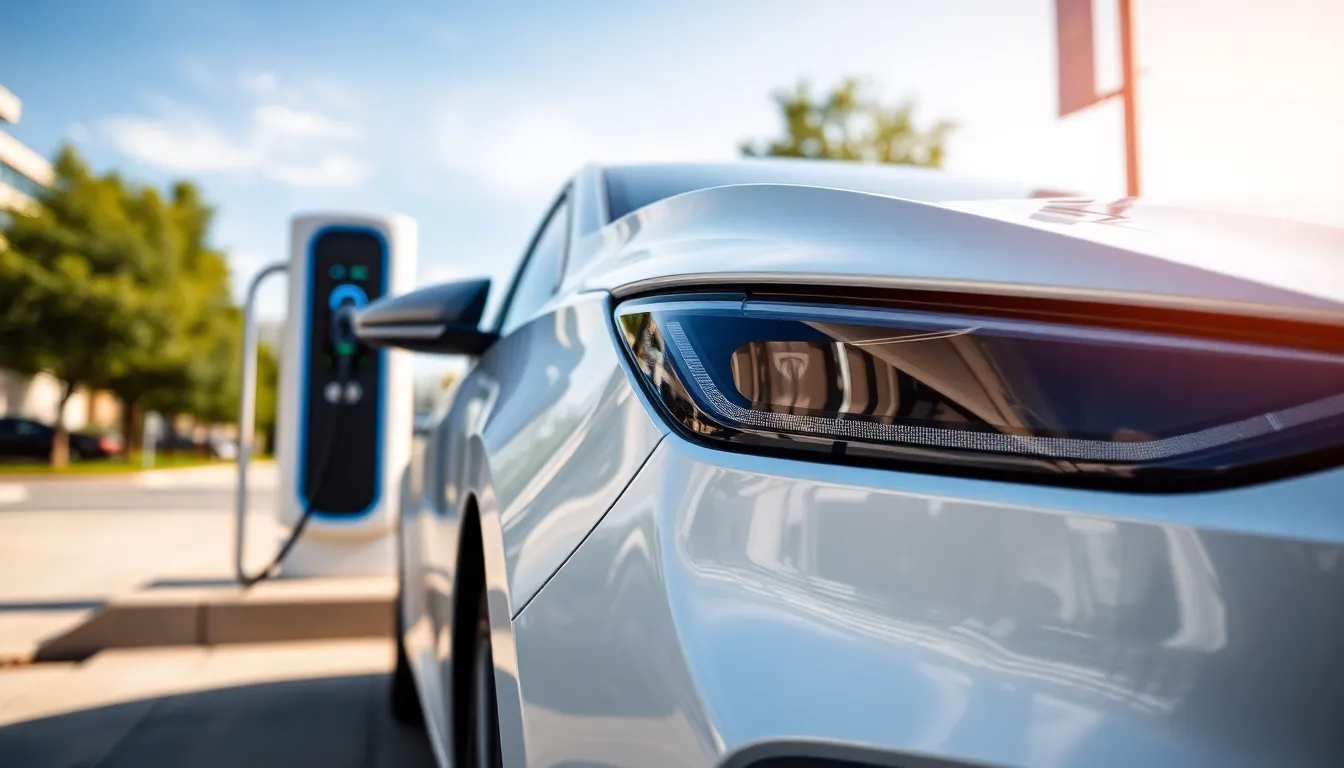As the world shifts gears towards a greener future, electric vehicles (EVs) are zooming into the spotlight. But amidst the buzz and excitement, one question lingers like a stubborn battery warning light: are these eco-friendly rides really reliable?
Table of Contents
ToggleAre Electric Vehicles Reliable?
Reliability plays a significant role in determining the overall appeal of electric vehicles (EVs). Battery performance remains a crucial factor in reliability. Most modern EVs utilize lithium-ion batteries, which typically last between 8 to 15 years, depending on usage and environmental factors.
Charging infrastructure also affects reliability. Many public charging stations are accessible, yet users need to consider the availability and speed of chargers on their routes. With over 100,000 charging stations across the United States, range anxiety is diminishing.
Maintenance requirements differ between EVs and traditional vehicles. Electric vehicles often require less maintenance since they have fewer moving parts. Regular checks on the brake and battery systems usually suffice, leading to long-term savings for owners.
Performance in various weather conditions enhances dependability. EVs can handle cold and hot climates; however, battery efficiency may fluctuate in extreme temperatures. Users may notice a decrease in range during frigid months, but recent advancements in battery technology are addressing this issue.
Consumer feedback paints a favorable picture of EV reliability. Studies indicate that EV owners express high satisfaction levels, with many reporting fewer problems compared to gasoline vehicles. Reports from sources like Consumer Reports and J.D. Power indicate that electric vehicles rank comparably or better than their gasoline counterparts regarding reliability.
Electric vehicles offer informative dashboards that alert owners to maintenance needs, enhancing their reliability. Technology integration ensures timely reminders about battery health and service schedules, giving owners peace of mind.
Through advancements in battery technology, charging infrastructure, and consumer support, electric vehicles show strong potential for reliability as they continue to evolve within the automotive landscape.
Factors Affecting Reliability

Several factors contribute to the reliability of electric vehicles (EVs). Understanding these aspects helps potential owners make informed decisions.
Battery Performance
Battery performance plays a crucial role in the overall reliability of electric vehicles. Most EVs utilize lithium-ion batteries, which last 8 to 15 years based on usage and environmental conditions. Charging habits affect battery longevity; frequent fast charging can lead to efficiency decline over time. Additionally, temperature extremes can impact battery efficiency, especially in severe cold or heat. Some manufacturers offer warranties that cover battery performance, providing added reassurance for owners. In the evolving landscape of battery technology, improvements continue to enhance both lifespan and reliability.
Maintenance Requirements
Maintenance requirements for electric vehicles differ significantly from those of traditional vehicles. EVs have fewer moving parts, which translates to lower maintenance needs. Regular servicing may include tire rotations and brake checks, but no oil changes excite owners. Most EVs possess onboard systems that alert drivers about maintenance needs, ensuring timely attention. As a result, many owners experience fewer issues over time. The straightforward maintenance reduces long-term costs and enhances reliability compared to gasoline vehicles. Overall, the simplified care routine contributes positively to the dependable reputation of electric vehicles.
Reliability Compared to Traditional Vehicles
Electric vehicles demonstrate a strong reliability compared to traditional gasoline vehicles. Battery performance significantly influences this reliability.
Performance Statistics
Studies indicate that lithium-ion batteries in EVs last between 8 to 15 years, influenced by usage patterns and climate factors. Reports from J.D. Power highlight that electric vehicles often rank comparably to or better than traditional vehicles in reliability surveys. Efficiency tends to decline with frequent fast charging, yet manufacturers provide warranties to reassure consumers about battery performance. Data from Consumer Reports shows that EVs typically encounter fewer mechanical issues, leading to enhanced overall reliability ratings.
Consumer Reviews
High satisfaction levels characterize consumer feedback regarding electric vehicle reliability. Many owners share experiences of fewer problems compared to their gasoline counterparts. Surveys reveal that a majority of EV drivers appreciate the lower maintenance demands, with fewer trips to the mechanic. A significant number report positive experiences across various weather conditions, despite occasional temperature effects on battery efficiency. Overall, positive reviews illustrate growing confidence in the reliability of electric vehicles.
Common Concerns about Electric Vehicle Reliability
Several common concerns about electric vehicle reliability arise, particularly regarding range and charging options.
Range Anxiety
Range anxiety persists as a primary concern for many prospective EV owners. This fear primarily stems from uncertainty about the distance an EV can travel on a single charge. Most modern EVs offer ranges between 200 to 400 miles, alleviating this worry for many users. EV owners frequently report that improvements in battery technology have extended their driving range significantly. Knowing the option of rapid charging exists further mitigates this anxiety. In fact, studies show that nearly 80% of EV drivers regularly charge at home, which limits the frequency of range-related concerns.
Charging Infrastructure
Charging infrastructure plays a critical role in the reliability perception of electric vehicles. The presence of over 100,000 charging stations across the U.S. significantly enhances accessibility for EV owners. Many major cities and highways are increasingly equipped with fast chargers, reducing the time required to recharge batteries. Manufacturers also partner with charging networks to ensure that drivers find stations conveniently located. With ongoing investments in infrastructure, future improvements aim to provide even more robust options. Data suggests that proper access to charging options fosters higher satisfaction levels among EV owners, further reinforcing their reliability in consumers’ eyes.
Electric vehicles have carved a niche for themselves in the automotive landscape by proving their reliability. With advancements in battery technology and a robust charging infrastructure EVs are increasingly seen as dependable alternatives to traditional vehicles. The longevity of lithium-ion batteries coupled with lower maintenance demands offers peace of mind to owners.
As charging stations become more accessible the concerns surrounding range anxiety diminish. Positive consumer feedback highlights high satisfaction levels and fewer issues compared to gasoline vehicles. This growing confidence in electric vehicles is reshaping perceptions and paving the way for a more sustainable future in transportation.
